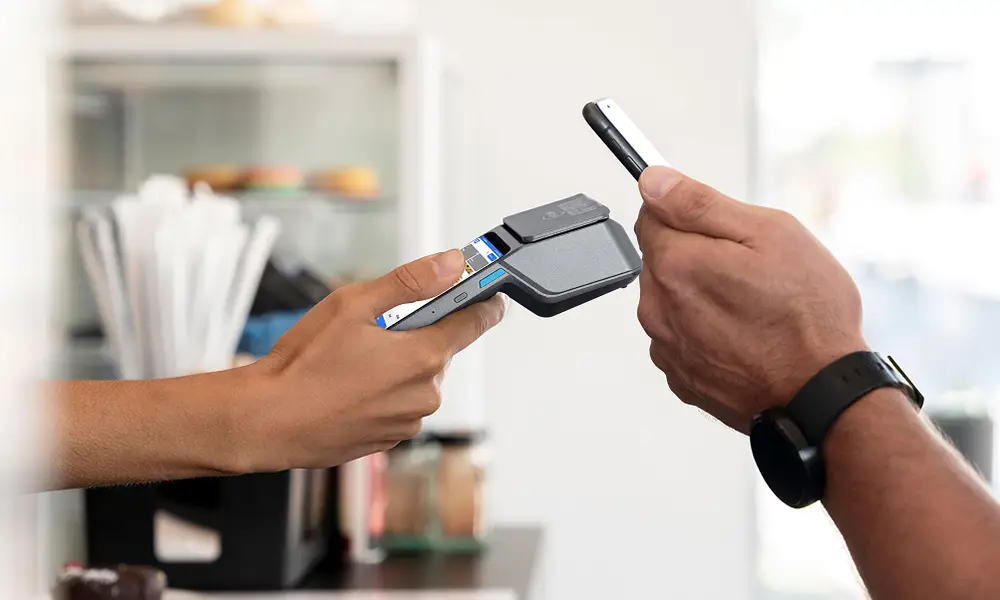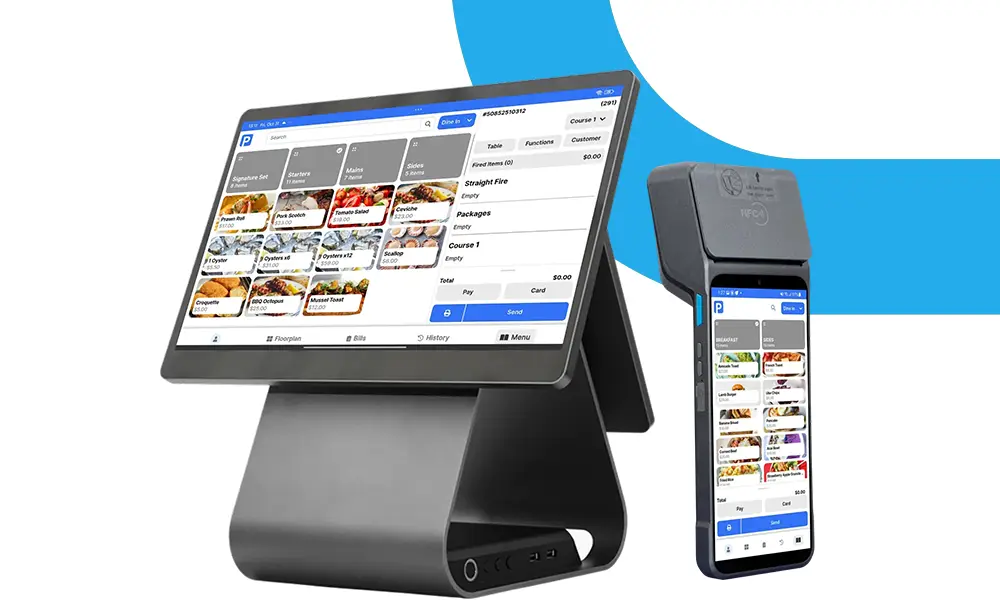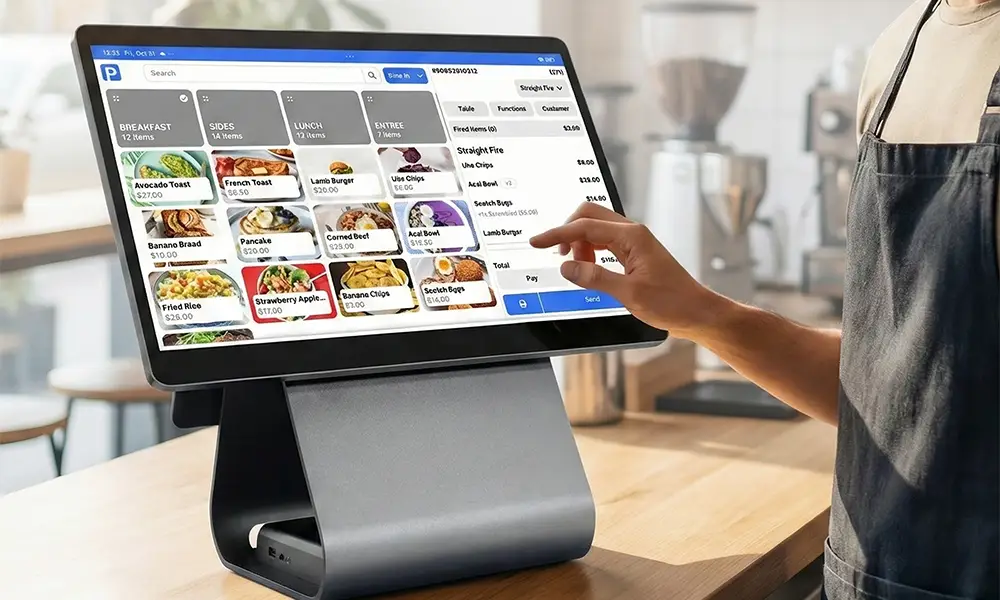Running a music store isn’t just about selling guitars and drum kits; it’s about creating a memorable experience for every musician who walks in. From handling unique inventory to offering lessons, instrument rentals, and repairs, managing all aspects of a music store requires organisation, accuracy, and a customer-first approach. But if you’re still using an outdated POS system (or worse, a cash register), you could be missing out on efficiency and profitability.
A well-suited music store POS can streamline operations, manage diverse inventory, and even support service-based offerings like rentals and repairs. In this guide, we’ll explore the best POS systems for music stores and the features that can help your business stay in tune with customer needs and market trends.
Why Your Music Store Needs a Specialised POS System
Music stores have a lot going on—from retail sales and instrument rentals to repairs and even lessons. A basic POS system might handle simple transactions, but a music store POS offers features that cater specifically to the needs of the music industry.
Key Benefits of a Music Store POS System
- Inventory Management for Diverse Stock
Track everything from small accessories like guitar picks to high-ticket items like pianos and synthesisers. A music store POS system can handle complex inventory, including items with variations, serial numbers, and warranty details. - Sales & Rentals in One Place
Many music stores offer rental services for instruments and equipment. A music store POS should track rental agreements, manage due dates, and handle deposits seamlessly. - Service and Repair Tracking
For music stores that offer repairs, a good POS system can manage service orders, track repair status, and even send notifications to customers when their instrument is ready for pick-up. - Lesson Scheduling and Payments
If your store offers music lessons, the right POS system can streamline scheduling, accept payments, and manage recurring appointments. - Customer Loyalty and Rewards
Encourage repeat visits with loyalty programs and targeted promotions, making customers feel valued and recognised.
By choosing a POS that fits your music store’s unique needs, you can improve efficiency, customer experience, and even your bottom line.
Features to Look for in a Music Store POS System
Selecting the right POS system for a music store involves considering features that go beyond typical retail requirements. Here’s what to look for:
1. Advanced Inventory Management
Managing inventory in a music store is no small task. A music store POS system should track stock accurately, including serial numbers, variations, and stock levels for both small accessories and large instruments. Look for systems that offer low-stock alerts, reordering options, and detailed inventory tracking across multiple locations if needed.
2. Rental Management
Instrument rentals are common in music stores, so it’s essential that your POS system can manage rentals seamlessly. This includes tracking rental agreements, deposit handling, due dates, and maintenance schedules.
3. Service and Repair Tracking
A music store POS should be able to track repairs and service requests, keeping tabs on the instrument’s status and estimated completion date. Some POS systems even send automated messages to notify customers when their repairs are ready.
4. Lesson Scheduling and Recurring Payments
If you offer lessons, a POS with scheduling functionality is a must. It should allow you to book appointments, manage teachers’ schedules, and handle recurring payments easily.
5. Customer Relationship Management (CRM)
A strong CRM feature helps you keep track of customer preferences, past purchases, and loyalty points. This data can be valuable for offering personalised service and tailored promotions.
6. Sales Reporting and Analytics
A music store POS with detailed reporting capabilities provides insights into sales trends, popular items, and peak hours. With these insights, you can make data-driven decisions to optimise stock, promote top-selling items, and adjust staffing.
Top POS Systems for Music Stores
Let’s dive into some of the best POS systems suited for music stores, each offering features that cater specifically to the unique needs of this industry.
1. Vend POS
Vend POS is a popular choice for retailers of all types, offering robust inventory management and excellent reporting tools. With Vend, you can track serial numbers, manage variations, and keep tabs on inventory across multiple locations.
Key Features:
- Serial Number Tracking: Essential for high-value items like guitars and keyboards.
- Customer Loyalty Program: Reward loyal customers with points and discounts.
- Detailed Reporting: Access sales, inventory, and customer data at your fingertips.
- Multi-Location Management: Ideal for music stores with multiple locations.
Vend POS is well-suited to medium-to-large music stores needing advanced inventory tracking and multi-location capabilities.
2. Lightspeed Retail POS
Lightspeed is a robust POS system that’s popular in specialty retail, including music stores. With strong features for both inventory management and customer engagement, Lightspeed supports complex retail needs.
Key Features:
- Inventory and Purchase Orders: Keep track of stock levels and reorder from suppliers with ease.
- CRM Tools: Capture customer preferences and purchase history.
- Repair and Service Tracking: Manage repair orders and track their progress.
- Integrated Loyalty Programs: Offer loyalty points to bring customers back.
Lightspeed’s flexible features make it an excellent choice for music stores that offer a mix of sales, rentals, and repairs.
3. Square for Retail
Square POS is an affordable, easy-to-use solution for small music stores that don’t need extensive customisation. While Square doesn’t have dedicated rental tracking, it’s an ideal starting point for stores primarily focused on sales.
Key Features:
- No Monthly Fees: Pay only transaction fees with the basic version.
- Easy Inventory Management: Track stock levels, manage reordering, and view low-stock alerts.
- Customer Engagement: Set up loyalty programs and email marketing campaigns.
- Real-Time Reporting: Get insights into sales trends and customer preferences.
Square POS is best suited for smaller music stores with limited rental needs and a focus on straightforward sales.
4. RepairShop POS
For music stores that handle a lot of repairs, RepairShop POS is an excellent choice. It’s designed with repair businesses in mind, allowing you to track service requests and manage customer communication.
Key Features:
- Repair Tracking: Manage repairs, service status, and customer notifications.
- Customer Database: Store customer information, purchase history, and repair details.
- Integrated Invoicing: Send invoices directly to customers for repair services.
- Appointment Scheduling: Schedule repairs and manage your team’s availability.
RepairShop is ideal for music stores that need dedicated repair management alongside regular sales.
5. Clover POS
Clover POS is a highly customisable POS system that supports both retail and service needs, making it suitable for music stores offering sales, rentals, and lessons.
Key Features:
- Customisable Interface: Tailor the POS layout to suit your store’s unique requirements.
- Inventory and Order Management: Track inventory with ease and manage purchase orders.
- Customer Loyalty Program: Offer rewards and encourage repeat visits.
- Appointment Scheduling and Payment Tracking: Manage lesson scheduling and handle payments for recurring services.
Clover POS is a versatile choice for music stores that want flexibility in their POS setup.
How to Choose the Right POS System for Your Music Store
Choosing the right POS system depends on the specific needs of your music store. Here are a few tips to guide you in the selection process:
- Identify Your Core Needs
Make a list of must-have features. Are you focused on instrument sales, rentals, repairs, or lessons? Each POS system has unique strengths, so focus on those that cater to your primary services. - Consider Your Budget
POS systems range from free options like Square to premium solutions like Lightspeed. Balance your budget with the features you need to find the best value. - Ask for a Demo
Many POS providers offer free demos or trial periods. Use this opportunity to get a feel for the interface, functionality, and ease of use. - Think About Scalability
If you plan on expanding your store or adding new services, choose a POS that can scale with your growth, like Vend or Lightspeed. - Check for Local Support
Reliable customer support is crucial, especially when issues arise during busy times. Look for a provider with dependable support services.
Ready to Harmonise Your Music Store with the Right POS System?
Choosing the right POS system for your music store is about finding a solution that matches your specific needs—whether that’s tracking stock, handling rentals, or managing lessons. With the right POS, you’ll streamline operations, make life easier for your team, and keep customers coming back.
Ready to find the perfect harmony for your store? Book a demo with Payflo and discover how the right music store POS system can keep your business in tune with customer needs.
FAQs about Music Store POS Systems
1. Can a music store POS system handle rentals?
Yes, many POS systems, like Vend and Clover, offer rental management features or can be customised to handle rentals effectively.
2. Are music store POS systems secure?
Absolutely. Reputable POS providers ensure data security with end-to-end encryption and compliance with industry standards.
3. How much does a music store POS system cost?
Costs vary. Basic systems like Square are free, with only transaction fees, while feature-rich options like Lightspeed may require monthly fees.
4. Can I track instrument repairs in a POS system?
Yes, systems like RepairShopr and Lightspeed include repair tracking features, allowing you to monitor service progress and notify customers when repairs are complete.
5. Is a POS system worth it for a small music store?
Definitely! Even smaller stores can benefit from streamlined operations, inventory tracking, and improved customer service.


%201.svg)
%201.svg)





.png)
.png)
